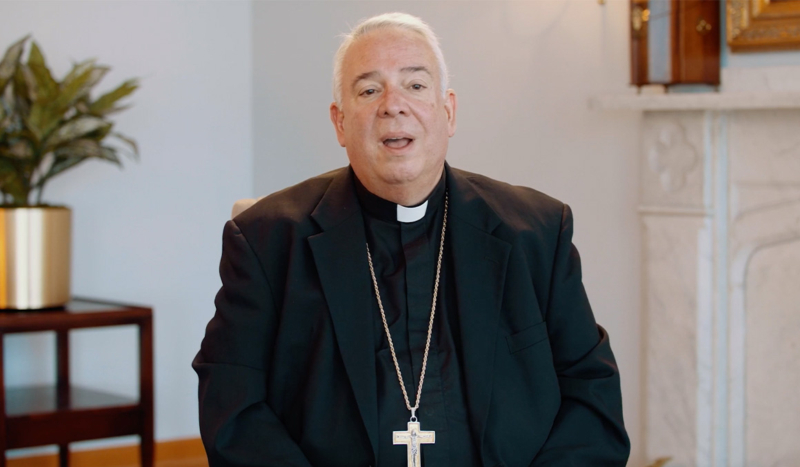
Trustandhope.org video screengrab / Vimeo
CV NEWS FEED // Philadelphia Archbishop Nelson J. Pérez on Jan. 5 invited the faithful of his Archdiocese, which is among many areas of the United States facing significant declines in Mass attendance, to aim for connection and engagement regarding the future of the Church.
In his letter, which was released in English and Spanish, the Archbishop reflected on the Archdiocese’s resilience, acknowledging the struggles endured over the past two decades.
He brought attention to the significant decline in Mass attendance and that 83% of baptized Catholics are not attending Mass.
“That fact needs to make us uncomfortable,” Archbishop Pérez wrote. “We need to have urgency around this.”
He is determined to shift the paradigm of pastoral planning, moving away from the traditional approach focused on closures and financial constraints. Instead, he is calling for a “pastoral change of heart” that prioritizes outreach and connection, particularly to those who feel distant from the Church.
“I want to begin to close this distance between many of our loved ones and the Church,” he wrote. “I want people to know that the Lord is still calling them, that they are of great worth, have a divine purpose, and an eternal home.”
Every community member plays a vital role in this mission, Archbishop Pérez said, encouraging all to reach out to loved ones who may feel disconnected.
To facilitate this renewal, the Archbishop is proposing the establishment of “Missionary Hubs” throughout the Archdiocese. These hubs will serve as centers of evangelization, focusing on engaging both Catholics who have drifted away and those outside the faith.
“We need to plan for these Missionary Hubs in a spirit of synodal discernment and collaboration,” Archbishop Pérez said. “I want communities and leaders to express interest in having a Missionary Hub planted at their parish. The seeds planted today will be the evangelical fruit of tomorrow.”
The Archbishop also acknowledged the need for flexibility within parish life, recognizing that different communities may require different approaches to thrive. He expressed his commitment to ensuring that parishes are not simply seen as institutions that open and close but as centers of faith that adapt to the needs of their communities.
As part of this vision, Archbishop Pérez proposed the introduction of parish life directors—deacons, men and women in consecrated life, or lay individuals—to assist in managing operations and ensuring pastoral care amid the challenges posed by a decreasing number of priests. This approach aims to sustain parish life while allowing retired and senior priests to continue their ministry in the Archdiocese.
In closing, the Archbishop extended an invitation to the faithful to participate in conversations this spring about the future of the Catholic community.
“I see our local Church as a hub of evangelization, vibrant with hope and grace,” he said. “But to move forward, I need to listen to your hopes, dreams, concerns, and desires for renewal. Please join me.”

